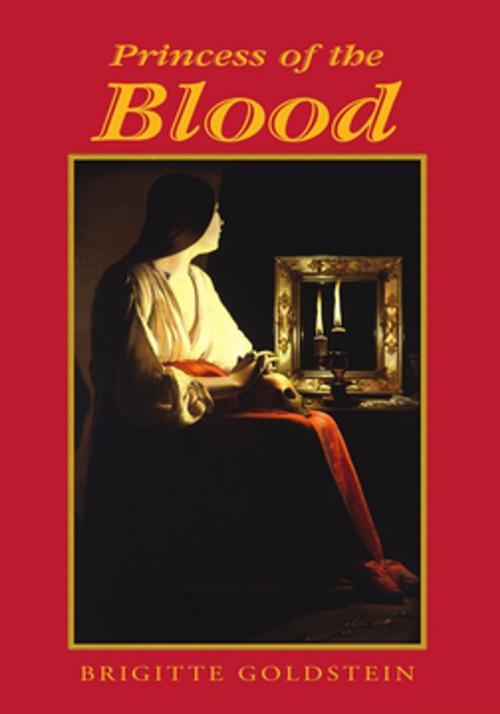Princess of the Blood
A Tapestry of Love and War in Sixteenth-Century France
Fiction & Literature, Historical| Author: | Brigitte Goldstein | ISBN: | 9781469113821 |
| Publisher: | Xlibris US | Publication: | September 20, 2005 |
| Imprint: | Xlibris US | Language: | English |
| Author: | Brigitte Goldstein |
| ISBN: | 9781469113821 |
| Publisher: | Xlibris US |
| Publication: | September 20, 2005 |
| Imprint: | Xlibris US |
| Language: | English |
The year 1588 finds the Kingdom of France in the grip of its seventh civil war. Three decades of bloody religious strife between Roman Catholics and Protestant Huguenots have cut a seemingly insurmountable rift. Philippe de Treffort is a young nobleman and captain in the army of the Catholic League, sworn to defend the Apostolic Faith against the heretic Reformed Religion. When spring maneuvers take him and his troops to a remote village in the southern Ile de France, he becomes enthralled with Sandrine, the local innkeepers daughter. From the moment they meet, he senses a mystery behind this beautiful, headstrong child so different from the peasants among whom she lives. In a moment alone, she confesses that she too feels a strange bond with him and that their encounter has revived in her a long-held dream of a liberator who would take her away from her miserable village existence. Blowing all conventions to the wind, he makes a solemn promise which he is, however, unable to fulfill as the waves of war engulf their lives and he is called back to fulfill his oath of allegiance to the Catholic cause. Sandrine remains behind in the village, waiting for his return. Meanwhile, Thierry, the innkeeper, is now called upon by the richest peasant in the village to make good on a promise to have his daughter married to him. When Sandrine resists the advances of her husband during their wedding night, he accuses her of having cast a spell on him and she is taken to Chartres where she is delivered into the hands of the Inquisition. Only her abiding faith in Philippes promise that he will return gives her the strength to endure the tortures. Her faith is ultimately vindicated and she is spared from being burned at the stake as a witch through a daring rescue launched by Philippe and his retainers. The lovers time together is all too brief, however. Again the war intervenes and Philippe must follow the call of duty, leaving Sandrine once again exposed to the vicissitudes of life beyond her control. She must duck a gauntlet of injustice, expulsion, starvation, sexual assaults, imprisonment, and all manner of evil machinations, including a protracted siege of Paris by the Huguenot army under Henri de Navarre. She descends into the Parisian underworld to escape a miscreant lecher and shares the lot of migrant workers in the South of the Kingdom. Sustained by the friendship of a troop of itinerant actors and the king of beggars and thieves, she braves all odds as she resolutely sets out to uncover the secret of her parentage and to gain the freedom from an evil fate that has conspired to keep her and Philippe apart. When she is finally restored to her birthright as a princess of the blood at the royal court, she too finds herself caught in the quandary of having to choose between duty to family and political exigencies and the fulfillment of personal happiness. Princess of the Blood is the epic quest of a young woman for her identity and personal freedom and fulfillment in love. It is a colorful tapestry depicting a social order shackled by rigid conventions and a mentality dominated by superstition and fanaticism. It paints the vagaries of political intrigue and protracted war in a world where deep religiosity is often matched by extreme cruelty; an uncompromising world that traps individuals in a pincer of duty and obligations from which there seems no escape. Yet, as the canvas unfolds it also reveals the promise of redemption in the person of a charismatic leader and a woman of undaunted spirit. A brighter scene dawns on the horizon, heralding a time when love and tolerance will triumph over war and discord.
The year 1588 finds the Kingdom of France in the grip of its seventh civil war. Three decades of bloody religious strife between Roman Catholics and Protestant Huguenots have cut a seemingly insurmountable rift. Philippe de Treffort is a young nobleman and captain in the army of the Catholic League, sworn to defend the Apostolic Faith against the heretic Reformed Religion. When spring maneuvers take him and his troops to a remote village in the southern Ile de France, he becomes enthralled with Sandrine, the local innkeepers daughter. From the moment they meet, he senses a mystery behind this beautiful, headstrong child so different from the peasants among whom she lives. In a moment alone, she confesses that she too feels a strange bond with him and that their encounter has revived in her a long-held dream of a liberator who would take her away from her miserable village existence. Blowing all conventions to the wind, he makes a solemn promise which he is, however, unable to fulfill as the waves of war engulf their lives and he is called back to fulfill his oath of allegiance to the Catholic cause. Sandrine remains behind in the village, waiting for his return. Meanwhile, Thierry, the innkeeper, is now called upon by the richest peasant in the village to make good on a promise to have his daughter married to him. When Sandrine resists the advances of her husband during their wedding night, he accuses her of having cast a spell on him and she is taken to Chartres where she is delivered into the hands of the Inquisition. Only her abiding faith in Philippes promise that he will return gives her the strength to endure the tortures. Her faith is ultimately vindicated and she is spared from being burned at the stake as a witch through a daring rescue launched by Philippe and his retainers. The lovers time together is all too brief, however. Again the war intervenes and Philippe must follow the call of duty, leaving Sandrine once again exposed to the vicissitudes of life beyond her control. She must duck a gauntlet of injustice, expulsion, starvation, sexual assaults, imprisonment, and all manner of evil machinations, including a protracted siege of Paris by the Huguenot army under Henri de Navarre. She descends into the Parisian underworld to escape a miscreant lecher and shares the lot of migrant workers in the South of the Kingdom. Sustained by the friendship of a troop of itinerant actors and the king of beggars and thieves, she braves all odds as she resolutely sets out to uncover the secret of her parentage and to gain the freedom from an evil fate that has conspired to keep her and Philippe apart. When she is finally restored to her birthright as a princess of the blood at the royal court, she too finds herself caught in the quandary of having to choose between duty to family and political exigencies and the fulfillment of personal happiness. Princess of the Blood is the epic quest of a young woman for her identity and personal freedom and fulfillment in love. It is a colorful tapestry depicting a social order shackled by rigid conventions and a mentality dominated by superstition and fanaticism. It paints the vagaries of political intrigue and protracted war in a world where deep religiosity is often matched by extreme cruelty; an uncompromising world that traps individuals in a pincer of duty and obligations from which there seems no escape. Yet, as the canvas unfolds it also reveals the promise of redemption in the person of a charismatic leader and a woman of undaunted spirit. A brighter scene dawns on the horizon, heralding a time when love and tolerance will triumph over war and discord.















